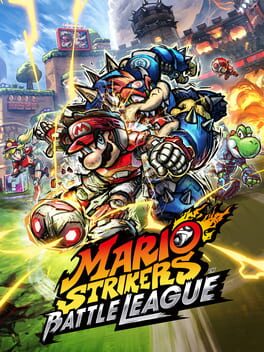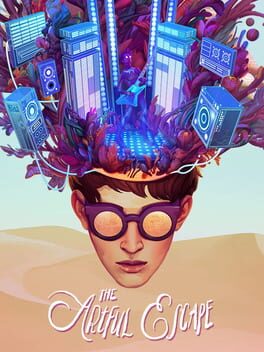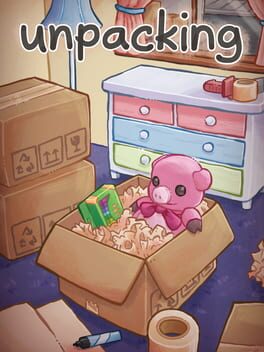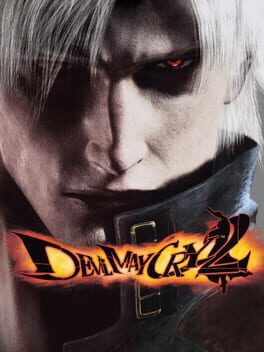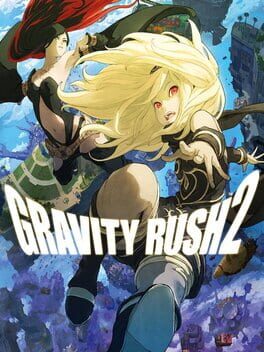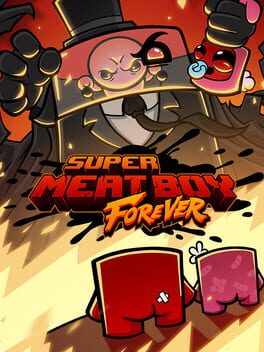TheounderStars
2019
Fucking unbelievable.
With Mario Strikers: Battle League, Next Level Games is once again confirmed as one of Nintendo's most talented studios, packaging an excellent title in gameplay but in desperate need of content.
Throwing into the field, you immediately realize that Battle League is an adrenaline-pumping experience in which reflexes and tactics are the main factors to be able to excel, with an unexpectedly deep gameplay that entertains a lot and requires you to improve game after game. The field that hosts the 4v4 matches may initially seem not very large due to the chaos of the matches dominated by fouls and objects, but you get used to it quickly; however, it's disappointing that the choice of the two sections of the pitch are only aesthetic and practically useless.
The 10 characters are diversified in their statistics such as shooting, passing, speed, etc., and customizable through pieces of equipment according to your tactics; Next Level also does not betray at all the strong personality and the unique style that distinguishes the Mario Strikers series, giving all the characters breathtaking and over the top animations, which constitute the second strong point of the title.
Behind a meticulous work there's a really poor offer: almost non-existent single-player content (in addition to the local matches there are only tournaments against the CPU that allow you to earn coins) that leave room for the soul of the game: the online multiplayer. The possibility of being able to join clubs online with other players and play weekly seasons is interesting, but even here it's difficult to imagine how such a game can last over time based only on this mode, making Battle League a game that holds up almost exclusively thanks to the gameplay that undoubtedly does not tire.
Plus Rosalina is fucking broken man omg
Throwing into the field, you immediately realize that Battle League is an adrenaline-pumping experience in which reflexes and tactics are the main factors to be able to excel, with an unexpectedly deep gameplay that entertains a lot and requires you to improve game after game. The field that hosts the 4v4 matches may initially seem not very large due to the chaos of the matches dominated by fouls and objects, but you get used to it quickly; however, it's disappointing that the choice of the two sections of the pitch are only aesthetic and practically useless.
The 10 characters are diversified in their statistics such as shooting, passing, speed, etc., and customizable through pieces of equipment according to your tactics; Next Level also does not betray at all the strong personality and the unique style that distinguishes the Mario Strikers series, giving all the characters breathtaking and over the top animations, which constitute the second strong point of the title.
Behind a meticulous work there's a really poor offer: almost non-existent single-player content (in addition to the local matches there are only tournaments against the CPU that allow you to earn coins) that leave room for the soul of the game: the online multiplayer. The possibility of being able to join clubs online with other players and play weekly seasons is interesting, but even here it's difficult to imagine how such a game can last over time based only on this mode, making Battle League a game that holds up almost exclusively thanks to the gameplay that undoubtedly does not tire.
Plus Rosalina is fucking broken man omg
2021
I made SSB Goku play heavy metal with Morgan Freeman in space, this is amazing
2021
Almost cured my depression
2021
It's been 19 years since the release of Metroid Fusion, the last major installment of the 2D games, and Metroid Dread picks up exactly where we left off Samus Aran after killing the entire X parasite species, or so she believed. On a mission to the planet ZDR, she'll have to deal with the new, terrible threat of the E.M.M.I., very agile robots of frightening power. The huntress becomes prey again.
Metroid Dread is the new chapter designed to be a valid start for anyone who has never touched the series (also thanks to a brief introduction on previous events) while also being able to give an experience worthy of its name to those who already had the opportunity to play all the others. Dread contains all the features that made its predecessors great: the disturbing atmospheres and the strong narrative imprint of Fusion, the huge, complex and interconnected game maps typical of Super Metroid, the 360° aiming mechanic of Samus Returns and a really satisfying control feedback.
Throughout the adventure we'll find ourselves exploring rooms and corridors that make up a large map, divided into many areas all connected to each other by teleportation and rapid navigation systems. MercurySteam has created a game world full of secrets, where the player will probably want to return to explore even after completing the story (about 8 hours), and its immensity is not intimidating to navigate: with or without the help of marks that can be positioned at will on the map, the main objective will never escape from our eye, and the sense of progression flows at a constant pace; those moments of frustration and total loss are decimated here, without appearing excessively linear. As in Fusion, the instructions and orders are given by Adam, the AI we find in specific rooms of the map, but unlike the previous game, he leaves more freedom to roam without marking the precise place of destination, but giving only an idea of where to go to continue. It is also given an idea of the position of the points that hide a secret through flashing areas on the map: in this sense the player is perhaps too helped in finding all the hidden objects, but this does not detract from the general "pleasure of discovery".
Obviously like all the other Metroid games it is necessary to reacquire all the abilities in order to progress, and in Dread in addition to the classic, iconic abilities there are new ones, which expand the possibilities of attack and movement. A fluid movement that is very highlighted by introducing the possibility of sliding while running and shooting at the same time, thanks to the free aim. From Samus Returns it also inherits the possibility of performing a parry, whose execution window is so wide that it can forgive a slight delay in pressing X, even if in any case it is not that easy to do especially in boss battles, where the attacks are very fast.
A huge part of the map is formed by the "E.M.M.I. zone", an area where the robots run undisturbed, in order to find and hunt Samus, who can only escape or hide. They are agile, fast and indestructible, and can only be defeated with a particular single-use weapon. If Samus is captured, the player has only two chances of being able to free himself via a parry, but, cleverly, the timing required is extremely precise (but not impossible), and the window for the parry is random. Once you have defeated one E.M.M.I., it's up to the next one, even more powerful than the other. A repetitiveness that fortunately does not persist throughout the game, since starting from the second half the threats and the stakes become even higher, and there is room for a greater variety of bosses.
Not all boss or miniboss battles are memorable, but one thing is certain: they are fast-paced, intense and make spectacularity their strong point. It can be said that Metroid Dread is very scenic and full of cutscenes, enhanced by a shining artistic direction, thanks to different settings and an aggressive use of colors. The technical side is also remarkable: the animations are incredible, and the game runs at 900p and 60 fps in docked mode, and at 720p in handheld, but (personal note) the frame rate drops during the cutscenes bothered me, and these are the cases that make me want a Switch hardware upgrade to enjoy these jewels to the fullest.
So, Metroid Dread enters into the list of the best Switch exclusives: fast-paced, strong replayability, damn fun gameplay and a great atmosphere.
Metroid Dread is the new chapter designed to be a valid start for anyone who has never touched the series (also thanks to a brief introduction on previous events) while also being able to give an experience worthy of its name to those who already had the opportunity to play all the others. Dread contains all the features that made its predecessors great: the disturbing atmospheres and the strong narrative imprint of Fusion, the huge, complex and interconnected game maps typical of Super Metroid, the 360° aiming mechanic of Samus Returns and a really satisfying control feedback.
Throughout the adventure we'll find ourselves exploring rooms and corridors that make up a large map, divided into many areas all connected to each other by teleportation and rapid navigation systems. MercurySteam has created a game world full of secrets, where the player will probably want to return to explore even after completing the story (about 8 hours), and its immensity is not intimidating to navigate: with or without the help of marks that can be positioned at will on the map, the main objective will never escape from our eye, and the sense of progression flows at a constant pace; those moments of frustration and total loss are decimated here, without appearing excessively linear. As in Fusion, the instructions and orders are given by Adam, the AI we find in specific rooms of the map, but unlike the previous game, he leaves more freedom to roam without marking the precise place of destination, but giving only an idea of where to go to continue. It is also given an idea of the position of the points that hide a secret through flashing areas on the map: in this sense the player is perhaps too helped in finding all the hidden objects, but this does not detract from the general "pleasure of discovery".
Obviously like all the other Metroid games it is necessary to reacquire all the abilities in order to progress, and in Dread in addition to the classic, iconic abilities there are new ones, which expand the possibilities of attack and movement. A fluid movement that is very highlighted by introducing the possibility of sliding while running and shooting at the same time, thanks to the free aim. From Samus Returns it also inherits the possibility of performing a parry, whose execution window is so wide that it can forgive a slight delay in pressing X, even if in any case it is not that easy to do especially in boss battles, where the attacks are very fast.
A huge part of the map is formed by the "E.M.M.I. zone", an area where the robots run undisturbed, in order to find and hunt Samus, who can only escape or hide. They are agile, fast and indestructible, and can only be defeated with a particular single-use weapon. If Samus is captured, the player has only two chances of being able to free himself via a parry, but, cleverly, the timing required is extremely precise (but not impossible), and the window for the parry is random. Once you have defeated one E.M.M.I., it's up to the next one, even more powerful than the other. A repetitiveness that fortunately does not persist throughout the game, since starting from the second half the threats and the stakes become even higher, and there is room for a greater variety of bosses.
Not all boss or miniboss battles are memorable, but one thing is certain: they are fast-paced, intense and make spectacularity their strong point. It can be said that Metroid Dread is very scenic and full of cutscenes, enhanced by a shining artistic direction, thanks to different settings and an aggressive use of colors. The technical side is also remarkable: the animations are incredible, and the game runs at 900p and 60 fps in docked mode, and at 720p in handheld, but (personal note) the frame rate drops during the cutscenes bothered me, and these are the cases that make me want a Switch hardware upgrade to enjoy these jewels to the fullest.
So, Metroid Dread enters into the list of the best Switch exclusives: fast-paced, strong replayability, damn fun gameplay and a great atmosphere.
2003
Monke mode: the videogame
2017
A sequel that largely expands what was already proposed by the first game in terms of content while maintaining and improving its foundations without completely solving those small problems that affected my experience.
Gravity Rush 2 continues the story (illustrated in comics) of Kat, Syd, Raven and the others after the events of the anime 'Gravity Daze: Ouverture', in which a gravity storm in Neu Hiraleon wiped out them along with the city. The story answers the most important questions of the first Gravity Rush but with a huge cliffhanger and various plots left incomplete, it is clear that the universe created by Toyama could not end with only 2 chapters, so I did not want to give weight to these shortcomings, although now a third chapter cannot happen.
The game world and the amount of things to do have almost quadrupled, with the first part of the adventure taking place in Jirga Para Lhao, a new location, and the second in a "new" Hekseville. Each setting, both already known and new, buzzes with life and is full of personality thanks also to the phenomenal Tanaka's music who exceeds his previous work. The side quests have definitely increased and are much more varied, although not all of them are fun like those with stealth or platforming phases. However, each of them show those sides of irony, injustice, hope and melancholy of the fictitious society of this universe seen through Kat's eyes. Kat remains an adorable and fun protagonist and the couple with Raven is perfect.
As already mentioned, the gameplay formula is expanded and improved in an intelligent way, introducing new "gravity styles" that tweak Kat's moveset to adapt to different situations, and improving the stasis field which is actually useful compared to that one of the first game , whose existence I often forgot.
Flying around buildings is always a joy, sometimes ruined by a camera that didn't make great improvements and has sent me into confusion (mixed with nausea) several times, especially in the action phases. I also encountered heavy frame rate drops due to too much on-screen stuff that the engine couldn't handle.
Among the other innovations, the two most important are the mines, where you can descend to collect gems, and the talismans, jewels of different types that give passive upgrades when equipped; two novelties that I have found not very relevant and that I have often ignored, not very useful for completion.
Glad I finally gave this series a try, and thank you Sony for destroying one of your best studios.
Gravity Rush 2 continues the story (illustrated in comics) of Kat, Syd, Raven and the others after the events of the anime 'Gravity Daze: Ouverture', in which a gravity storm in Neu Hiraleon wiped out them along with the city. The story answers the most important questions of the first Gravity Rush but with a huge cliffhanger and various plots left incomplete, it is clear that the universe created by Toyama could not end with only 2 chapters, so I did not want to give weight to these shortcomings, although now a third chapter cannot happen.
The game world and the amount of things to do have almost quadrupled, with the first part of the adventure taking place in Jirga Para Lhao, a new location, and the second in a "new" Hekseville. Each setting, both already known and new, buzzes with life and is full of personality thanks also to the phenomenal Tanaka's music who exceeds his previous work. The side quests have definitely increased and are much more varied, although not all of them are fun like those with stealth or platforming phases. However, each of them show those sides of irony, injustice, hope and melancholy of the fictitious society of this universe seen through Kat's eyes. Kat remains an adorable and fun protagonist and the couple with Raven is perfect.
As already mentioned, the gameplay formula is expanded and improved in an intelligent way, introducing new "gravity styles" that tweak Kat's moveset to adapt to different situations, and improving the stasis field which is actually useful compared to that one of the first game , whose existence I often forgot.
Flying around buildings is always a joy, sometimes ruined by a camera that didn't make great improvements and has sent me into confusion (mixed with nausea) several times, especially in the action phases. I also encountered heavy frame rate drops due to too much on-screen stuff that the engine couldn't handle.
Among the other innovations, the two most important are the mines, where you can descend to collect gems, and the talismans, jewels of different types that give passive upgrades when equipped; two novelties that I have found not very relevant and that I have often ignored, not very useful for completion.
Glad I finally gave this series a try, and thank you Sony for destroying one of your best studios.
2019
gets killed
NOW WERE YOU RUSHING OR WERE YOU DRAGGING? ANSWER!!!!!
NOW WERE YOU RUSHING OR WERE YOU DRAGGING? ANSWER!!!!!
2019
Make games cozy and kind again.
2019
Wow. What a masterpiece. Outer Wilds is truly one of those rare experiences that don't happen often and I don't think I've ever played anything like this before.
Outer Wilds embodies within itself the concepts of "freedom" and "pleasure of discovery" as I have never seen. From the first awakening, the player (who impersonates a Hearthian astronaut) is like a newborn and abandoned puppy, a dot in the universe, which sets out to explore an entire star system, before the sun turns into a supernova and destroys anything within a 22-minute time loop. How, and why? It will be up to us to find out, it will become our primary purpose. In this journey we will be alone, against the universe, and no one else will help us, in a process made up of attempts, discoveries and knowledge acquisition in order to solve a huge galactic puzzle full of lore and fundamental clues to reconstruct the past of the star system.
Outer Wilds shows us space as a hostile, intimidating, almost disturbing place, but at the same time alive, in constant change; each planet has its own particular characteristics and there is always something new to explore: it continually stimulates the player's curiosity to collect more and more informations in order to understand what is really happening, and exploration is rewarding in a way I have never seen in any open world (and this is NOT an open world).
It is difficult to talk about Outer Wilds without going too deep with the explanations: for a truly intriguing and full of mystery experience it is better to know as little as possible, and discover it for yourself.
Being able to reveal what was hidden behind the strange event of the sun explosion, by reconstructing a story constructed and told in a very intelligent way, was satisfying to say the least, although some puzzles in the game were not very intuitive and did not entirely reward the world exploration.
In summary, unique.
Outer Wilds embodies within itself the concepts of "freedom" and "pleasure of discovery" as I have never seen. From the first awakening, the player (who impersonates a Hearthian astronaut) is like a newborn and abandoned puppy, a dot in the universe, which sets out to explore an entire star system, before the sun turns into a supernova and destroys anything within a 22-minute time loop. How, and why? It will be up to us to find out, it will become our primary purpose. In this journey we will be alone, against the universe, and no one else will help us, in a process made up of attempts, discoveries and knowledge acquisition in order to solve a huge galactic puzzle full of lore and fundamental clues to reconstruct the past of the star system.
Outer Wilds shows us space as a hostile, intimidating, almost disturbing place, but at the same time alive, in constant change; each planet has its own particular characteristics and there is always something new to explore: it continually stimulates the player's curiosity to collect more and more informations in order to understand what is really happening, and exploration is rewarding in a way I have never seen in any open world (and this is NOT an open world).
It is difficult to talk about Outer Wilds without going too deep with the explanations: for a truly intriguing and full of mystery experience it is better to know as little as possible, and discover it for yourself.
Being able to reveal what was hidden behind the strange event of the sun explosion, by reconstructing a story constructed and told in a very intelligent way, was satisfying to say the least, although some puzzles in the game were not very intuitive and did not entirely reward the world exploration.
In summary, unique.
I'll say one thing: I love Super Meat Boy. Imo, the first chapter is not a masterpiece, but it is one of the games I am most attached to. It brought Edmund McMillen to the Olympus of my favorite game designers. It was my very first indie game and without it I would never have discovered or developed this deep love for independent productions, probably. And about 5 years after I first played it, the sequel has arrived.
The twist from pure platform to an auto-runner has made almost everyone turn up their noses, and many of them are still reluctant to try Forever because of this new form. I was very skeptical of this project too, fearing that it would completely distort the essence of Meat Boy as I knew it.
Well, I'm really glad I was wrong. I entered it with dubious enthusiasm and came out largely satisfied. Super Meat Boy Forever gives an experience with a new flavor but it remains faithful to its predecessor: precise and responsive controls and levels that put the player's skills to the test. But the focus of the title is based on the diversity of one game from another: each level of a new campaign will be procedurally generated and will have its own specific seed, guaranteeing a high replayability. A particular but apt design choice; though, it happens to get stuck in some levels later in the game that require several attempts just to understand how to overcome certain sections (and not for their actual difficulty), and can lead to a tedious trial and error. Also in my first save file I encountered some bugs that broke the levels, not allowing me to complete them and making 100% impossible to do (the “day one” plague, ugh). Fortunately some of them have already been fixed but I cannot omit them if I want to talk about my experience.
So far I have not mentioned the story because it will seem absurd what I am about to say: the narrative is the best part of the game. The qualitative level of the cutscenes and the twists that the plot takes towards the end reach a point that I could NEVER have imagined.
It has incredible animations and a new style that does not preserve the uniqueness of McMillen's first game, but I still consider it beautiful.
So, has it been worth it to wait all these years for this return? For me, absolutely yes. This is NOT a perfect return, but in line with my expectations, because we are talking about a good product that every fan of the series should try.
Nugget is so precious I love her btw.
The twist from pure platform to an auto-runner has made almost everyone turn up their noses, and many of them are still reluctant to try Forever because of this new form. I was very skeptical of this project too, fearing that it would completely distort the essence of Meat Boy as I knew it.
Well, I'm really glad I was wrong. I entered it with dubious enthusiasm and came out largely satisfied. Super Meat Boy Forever gives an experience with a new flavor but it remains faithful to its predecessor: precise and responsive controls and levels that put the player's skills to the test. But the focus of the title is based on the diversity of one game from another: each level of a new campaign will be procedurally generated and will have its own specific seed, guaranteeing a high replayability. A particular but apt design choice; though, it happens to get stuck in some levels later in the game that require several attempts just to understand how to overcome certain sections (and not for their actual difficulty), and can lead to a tedious trial and error. Also in my first save file I encountered some bugs that broke the levels, not allowing me to complete them and making 100% impossible to do (the “day one” plague, ugh). Fortunately some of them have already been fixed but I cannot omit them if I want to talk about my experience.
So far I have not mentioned the story because it will seem absurd what I am about to say: the narrative is the best part of the game. The qualitative level of the cutscenes and the twists that the plot takes towards the end reach a point that I could NEVER have imagined.
It has incredible animations and a new style that does not preserve the uniqueness of McMillen's first game, but I still consider it beautiful.
So, has it been worth it to wait all these years for this return? For me, absolutely yes. This is NOT a perfect return, but in line with my expectations, because we are talking about a good product that every fan of the series should try.
Nugget is so precious I love her btw.
2018
After two years since the beginning of early access, the 4th effort of Supergiant Games, authors of Bastion, Transistor and Pyre, has finally arrived on PC and Nintendo Switch, entering prepotently in the Olympus (for real) of the rogue-like genre and demonstrating how even this type of games can in fact show a strong narrative component, well integrated with the gameplay.
This is a rogue-lite, a rogue-like but with the presence of permanent unlockable bonuses and upgrades that allow the player to get more and more powerful in the next runs. The protagonist is the god Zagreus, son of Hades and prince of the underworld, who will have the goal to escape his father’s kingdom and rejoin his distant relatives on mount Olympus, in a quest that will lead him to rediscover himself and his origins.
Although I should discuss the actual gameplay that defines the work, we’re talking about a Supergiant title. So, I’d like to emphasize the art and the music of this game. EVERY single detail, the animations, the fluidity of the effects are maniacally curated, and every single frame is a painting by itself (Jen Zee is extremely talented btw). The soundtrack is a masterpiece: Darren Korb and Ashley Barrett deliver the peak of their work. Eurydice’s charming voice forced me to put down my controller and just listen to her song almost every time I entered her room.
What makes this game worthy of becoming a cult is the incredible work behind both narrative and the gameplay formula. Hades offers a fun, satisfying, adrenalinic gameplay in which the player will fight and travel through the 4 dungeons in Hades’s reign, using 6 different weapons, each one with its own moveset and upgrades (“aspects”), while Zagreus will bring with him “keepsakes”, that he will get creating relations with characters and will allow him to gain bonuses, along with other upgrades unlockable with “darkness” (one of the game’s currencies). In every room of the dungeon there are, among other rewards, “boons” by Olympus gods, that vary depending on every god’s personality and branch. The choice of how players want to face a new run is up to their strategies and style of play. About the narrative side, Hades debunks the “story is pointless in a rogue-like” myth. It represents a huge step forward, with an amazing cast of characters, a ridiculous amount of dialogues and a lot of side quests that will take at least 150 hours to gain 100%.
In conclusion, this is my GOTY 2020.
This is a rogue-lite, a rogue-like but with the presence of permanent unlockable bonuses and upgrades that allow the player to get more and more powerful in the next runs. The protagonist is the god Zagreus, son of Hades and prince of the underworld, who will have the goal to escape his father’s kingdom and rejoin his distant relatives on mount Olympus, in a quest that will lead him to rediscover himself and his origins.
Although I should discuss the actual gameplay that defines the work, we’re talking about a Supergiant title. So, I’d like to emphasize the art and the music of this game. EVERY single detail, the animations, the fluidity of the effects are maniacally curated, and every single frame is a painting by itself (Jen Zee is extremely talented btw). The soundtrack is a masterpiece: Darren Korb and Ashley Barrett deliver the peak of their work. Eurydice’s charming voice forced me to put down my controller and just listen to her song almost every time I entered her room.
What makes this game worthy of becoming a cult is the incredible work behind both narrative and the gameplay formula. Hades offers a fun, satisfying, adrenalinic gameplay in which the player will fight and travel through the 4 dungeons in Hades’s reign, using 6 different weapons, each one with its own moveset and upgrades (“aspects”), while Zagreus will bring with him “keepsakes”, that he will get creating relations with characters and will allow him to gain bonuses, along with other upgrades unlockable with “darkness” (one of the game’s currencies). In every room of the dungeon there are, among other rewards, “boons” by Olympus gods, that vary depending on every god’s personality and branch. The choice of how players want to face a new run is up to their strategies and style of play. About the narrative side, Hades debunks the “story is pointless in a rogue-like” myth. It represents a huge step forward, with an amazing cast of characters, a ridiculous amount of dialogues and a lot of side quests that will take at least 150 hours to gain 100%.
In conclusion, this is my GOTY 2020.
2007
Short review:
Ok, I just want to share a little thought about Portal. It is useless to discuss how perfect it is. One of the best successful experiments in videogame history, whose potential is squeezed to the core in its sequel, but it is clear that the first is absolutely no less.
What I really wanted to focus on was my interpretation of events. I have never heard anyone say this, but as soon as I finished the game I had this feeling: the story of Portal, although very simple, is a kind of representation of the Stockholm syndrome. The character of GLaDOS is an explosive concentrate of humor, wickedness and passive aggression, and as much as you can hate her as much as you love her, throughout the course of events, I never really had the idea of eliminating her. Being in the shoes of Chell, i.e. alone, locked up in a laboratory and not knowing how and why I am there, my only guide is an AI who sees me as a disposable laboratory rat, who cares absolutely nothing, but at the at the same time without it I would lose my only point of reference. And that made me grow fond of that evil voice. A different affection from the simple thought: "Man, I love this character". We pass from hatred to a sense of total loss due to her absence, so much that we ask ourselves "what now?".
Yeah basically I don't know how to finish this review so if you are still reading, Still Alive > Want You Gone ok bye
Ok, I just want to share a little thought about Portal. It is useless to discuss how perfect it is. One of the best successful experiments in videogame history, whose potential is squeezed to the core in its sequel, but it is clear that the first is absolutely no less.
What I really wanted to focus on was my interpretation of events. I have never heard anyone say this, but as soon as I finished the game I had this feeling: the story of Portal, although very simple, is a kind of representation of the Stockholm syndrome. The character of GLaDOS is an explosive concentrate of humor, wickedness and passive aggression, and as much as you can hate her as much as you love her, throughout the course of events, I never really had the idea of eliminating her. Being in the shoes of Chell, i.e. alone, locked up in a laboratory and not knowing how and why I am there, my only guide is an AI who sees me as a disposable laboratory rat, who cares absolutely nothing, but at the at the same time without it I would lose my only point of reference. And that made me grow fond of that evil voice. A different affection from the simple thought: "Man, I love this character". We pass from hatred to a sense of total loss due to her absence, so much that we ask ourselves "what now?".
Yeah basically I don't know how to finish this review so if you are still reading, Still Alive > Want You Gone ok bye

